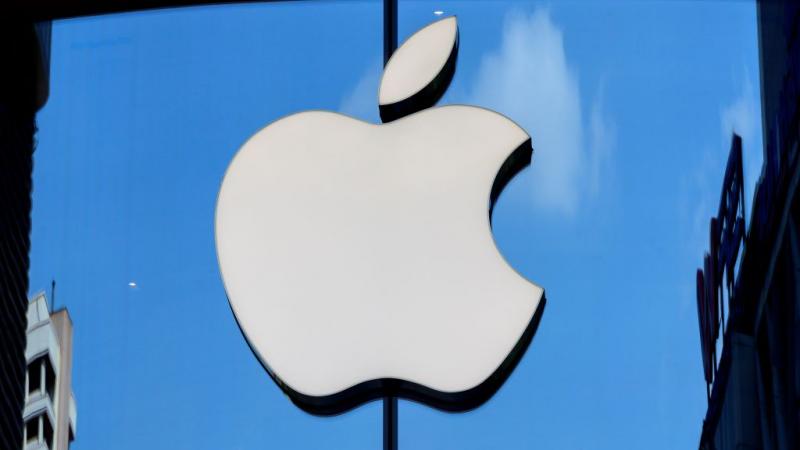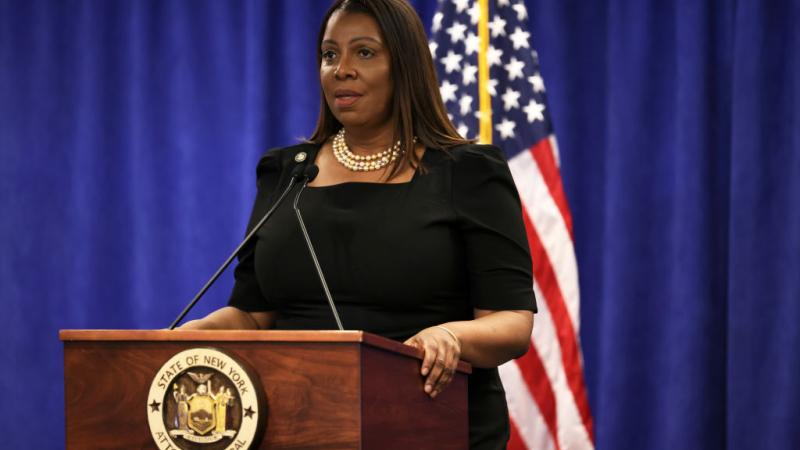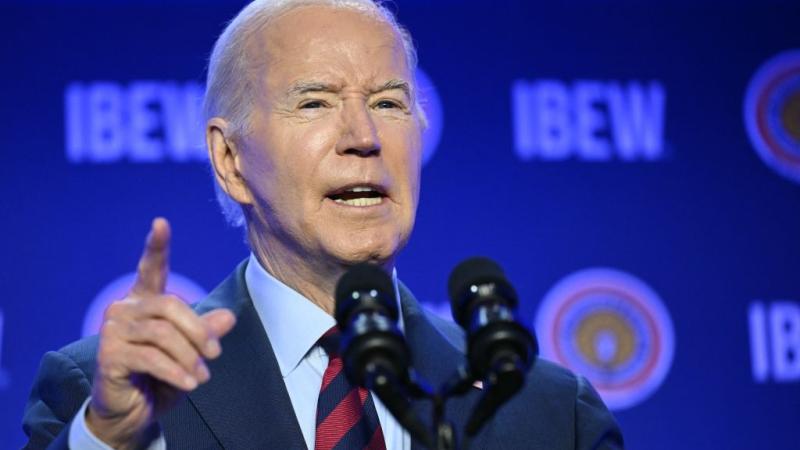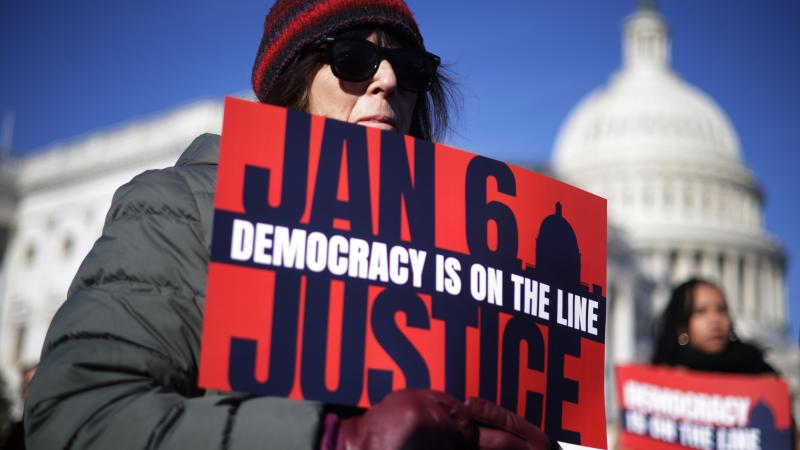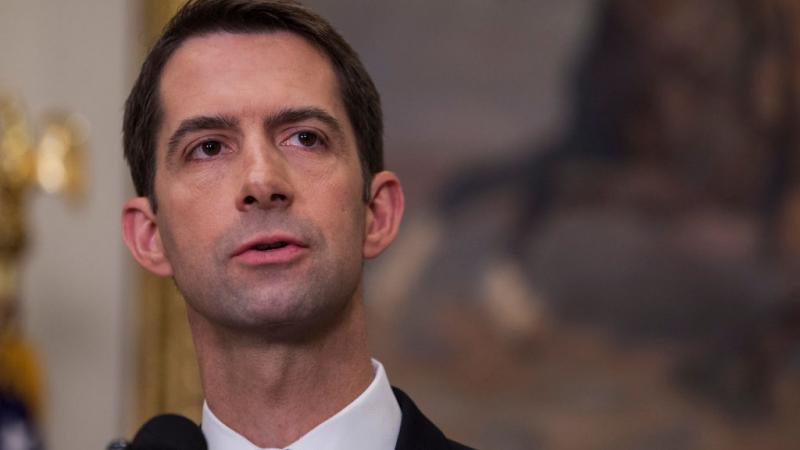Big Tech companies shouldn't be targeted as monopolies, say former Trump, Reagan officials
Study concluded biggest winner as a result of the passing and signing of such federal legislation would be China
Legislation being pushed by Congress that would apply and expand antitrust regulations on the United States' multi-trillion-dollar, high-tech industry would result in higher prices for consumers and undermine the country's technological edge over other nations, according to a new study.
The study by the Committee to Unleash Prosperity, which advocates supply-side economics with limited-government involvement, argues against recent antitrust legislation targeting the country's largest and most influential high-tech companies, known collectively as Big Tech.
"The recent wave of antitrust legislation … would harm consumers, increase inflationary pressures, and by installing European-style antitrust rules, threaten to weaken America's leading technology firms and relegate them to the same status as their European counterparts," the report states. "The biggest beneficiary will be U.S. international competitors, mostly notably China."
The report was written by Arthur Laffer, a principal at the committee who was an economic economic adviser to former Presidents Ronald Reagan and Donald Trump, and John Barrington Burke, an economic research analyst at a private firm founded by Laffer.
Their findings come as lawmakers are pushing to pass antitrust measures that could reshape the tech industry before the midterm elections.
The most notable and hotly debated of the legislative proposals is the American Innovation and Choice Online Act, introduced by Minnesota Democrat Sen. Amy Klobuchar.
The bill – which has bipartisan support including Iowa GOP Sen. Chuck Grassley as a cosponsor – would prohibit major tech platforms such as Google and Amazon from giving preferential treatment to their own services in marketplaces they operate.
Critics of such business practices say they, at the very least, put other companies a disadvantage in such online marketplaces and at worst create a monopoly.
"American prosperity was built on a foundation of open markets and fair competition, but right now our country faces a monopoly problem, and American consumers, workers, and businesses are paying the price," Klobuchar said earlier this year.
"As dominant digital platforms – some of the biggest companies our world has ever seen – increasingly give preference to their own products and services. We must put policies in place to ensure small businesses and entrepreneurs still have the opportunity to succeed in the digital marketplace. This bill will do just that, while also providing consumers with the benefit of greater choice online."
Lawmakers hope to advance her bill through the Senate this summer, according to CNBC.
A companion, also-bipartisan bill in the House is being spearheaded by Reps. David Cicilline (D-Rhode Island) and Ken Buck (R-Colorado.)
While proponents advocate new measures to create a more even playing field, critics of the bill argue antitrust laws, which are designed to protect consumers against monopolistic behavior, don't apply here because Big Tech companies aren't monopolies.
"The most recent ... data from the U.S. Census reveal that between 2002-2017, the Information Technology sector was less concentrated than the average U.S. industry and the Information Technology sector was also declining in concentration over that period," the report states.
In addition, the report argues major tech companies, in fact, help lower prices for consumers.
"The digital economy is a powerful force for lowering prices throughout the economy, while prices from traditional businesses tend to rise with inflation," Burke and Laffer wrote. "Bills such as [Klobuchar's] will mitigate the digital economy's strengths and in all probability raise prices for consumers."
According to the Digital Price Index, which measures prices of goods sold in the digital economy, a good that cost $100 in 2014 fell to about $84 by March of this year. Meanwhile, a good or service in the non-digital economy that cost $100 in 2014 increased to about $122 by March of this year, according to the Consumer Price Index, which measures what consumers pay for goods and services.
"By definition, companies that are reducing prices are not acting as monopolies," Stephen Moore, a principal at the Committee to Unleash Prosperity who served as an economic adviser in the Trump administration, told Just the News. He added that Google, Twitter, Apple, Facebook, and Microsoft have created a "consumer benefit surplus" of $1-2 trillion in other words the financial benefit that consumers have gotten from these tech giants.
"I've had discussions with senators saying, 'I know you're right, but we need to hit Big Tech hard and send a message,'" said Moore, who's also the senior economist at FreedomWorks. "People can be angry at Big Tech companies, as I am, for discriminatory policies against conservatives. But tech companies aren't acting as monopolists. They're reducing prices, not raising them, and they're benefiting consumers economically."
In recent years, Big Tech has become a top target of conservatives, who allege platforms such as Twitter and Facebook censor content they post to push a left-wing agenda.
Grassley has referenced such censorship when pushing the antitrust bill.
"Big Tech needs to be held accountable if they behave in a discriminatory manner," he said earlier this year. "Our bill will help create a more even playing field and ensure that small businesses are able to compete with these platforms."
A spokesperson for Grassley told Just the News that antitrust rules are essential to ensure fair competition in the high-tech industry.
"The bill simply works to ensure fairness for all market participants," said the spokesperson. "It's no longer a free market when Big Tech companies can preference their own products over those of a small business that is reliant on the platform to reach customers."
Moore expressed a different view, arguing there's plenty of competition in the tech space.
"There are lots of search engines, for example, that people can choose to use or not use," he said. "There is competition. The reason everyone uses the same services is because they provide a lot of added value for low cost that competitors can't match. If you're mad at them, don't use antitrust measures erroneously."
The committee's report argues that a "ban on self-preferencing and vertical integration" would create "tech stagnation" by stifling and disrupting the ability of high-tech companies to innovate and produce at lower costs.
Vertical integration is when a single ownership combines two or more stages of production or distribution (or both) that are usually separate — for example, the smartphone, which combines several stages of production and distribution under one umbrella.
Burke and Laffer warn that the Senate bill would adopt a more European antitrust model, writing that all of Europe's tech companies are worth about 30% of any one of Amazon, Apple, Google, or Facebook.
They also note that Klobuchar's legislation would empower the Federal Trade Commission by expanding its scope and increasing its regulatory budget by about $300 million.
Under the Biden administration, the FTC has come under fire for what critics have described as an agenda more hostile to businesses than the norm.
"This is arguably the single largest regulatory grab by big government in the last 30 years," Moore said.

